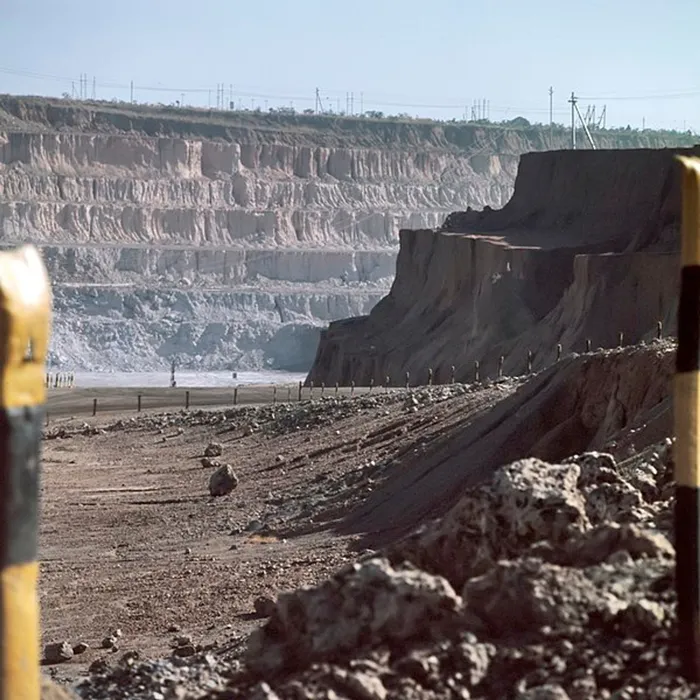Not yet uhuru: DRC a victim of its immense mineral wealth

Copper mining in Kolwezi, in the Democratic Republic of the Congo. Reports reveal that over 200 companies from the United Kingdom and Belgium have been purchasing minerals from the DRC, which are financing armed groups and exacerbating conflict, the writer says. – Picture: Wikimedia / CC
By Veronica Mente
On this occasion of the Democratic Republic of Congo’s (DRC) 64th anniversary of independence from colonisation, it is important to take the opportunity to highlight the ongoing conflict in the country.
It is unfortunate that the DRC, a victim of their immense mineral resources, remains ensnared in a devastating cycle of conflict and exploitation, emblematic of enduring neo-colonialism in Africa.
The situation in the DRC is multi-layered, involving Western imperialist actors who benefit from perpetuating war and conflict to violently extract free resources, while neighbouring countries such as Rwanda and Uganda have chosen to propagate this conflict further in order to benefit from the country’s resources themselves.
From colonial rule, the DRC has endured immense suffering. Colonised under King Leopold II's rule of Belgium in 1880 known as the Congo Free State, there was brutal exploitation of resources such as rubber and ivory through forced labour and horrific violence against the Congolese people; the monstrosity of Leopold led to the genocide of over 10 million Congolese between 1880 and 1920.
From 1908 Belgium renamed it Belgian Congo and despite some reforms, the exploitative system persisted, continuing to prioritise Belgian economic interests over the well-being of the Congolese.
Through the determination of revolutionary leaders like Patrice Lumumba, Congo achieved independence on June 30, 1960, aiming to unite a country fractured by Belgian-imposed ethnic and regional divisions.
Lumumba became the first Prime Minister of the country and was resolute in eradicating imperialism and committed to enacting socialist principles that prioritised the welfare of his people above all else.
However, Belgian interests persisted in controlling the country to continue exploiting its mineral resources. Meanwhile, amid the Cold War, the United States (US) viewed a Lumumba-led government as unacceptable due to his socialist leanings, which threatened to bring stability to the region in ways that did not align with Western interests.
It is evident that Congolese independence was never truly given a chance. Only seven months after being elected, on January 17, 1961, Lumumba was brutally assassinated by Belgian forces in collusion with local leaders and the US’s CIA. From that point forward, the country has known no peace, enduring several civil wars and suffering under Western-backed dictators like Mobutu Sese Seko.
During these years, more than 6 million deaths have been caused by conflicts alone since 1998. The eastern provinces, particularly North Kivu and South Kivu, have experienced genocidal massacres, displacing over 6.7 million people and subjecting 400,000 women to appalling sexual violence annually, the highest rate globally.
This crisis is further perpetuated by Western powers’ insatiable hunger for the DRC’s vast mineral wealth, crucial for technologies like smartphones, PlayStations, electric vehicle batteries and other electronics.
Now as much as 70 percent of global cobalt originates from the DRC, extracted under exploitative terms by international corporations, including Chinese entities dominating cobalt mines, and Swiss-based Glencore exploiting copper and cobalt resources.
Recently, the United Arab Emirates has also entered the fray to exploit tin, tantalum, tungsten, and gold, exacerbating instability in the volatile eastern provinces.
Reports reveal that over 200 companies from the United Kingdom and Belgium have been purchasing minerals from the DRC, which are financing armed groups and exacerbating conflict. Many of these companies show little concern about the inclusion of 'conflict minerals' in their supply chains, and these governments remain implicated as they refuse to take action against these exploitative companies operating within their jurisdictions.
Furthermore, despite being adversaries, the national Congolese army and rebel groups are also collaborators, dividing territory and sharing the profits from illegal mining.
Rwanda’s support for proxy groups like the M23, purportedly for ethnic protection, allows them to benefit from the conflict by exploiting Congolese gold, now constituting nearly 50 percent of Rwanda's gold exports. Uganda similarly profits from this gold, which makes up almost 60 percent of its own gold exports.
As a result, violence against unarmed civilians persists, claiming countless lives daily. All factions involved in the DRC conflict systematically employ forced labour, including children, and engage in violent extortion within mining areas.
Not only richly endowed with mineral resources, but the DRC also has enough water to serve the entire continent of Africa and provide electricity across the region.
Celebrating the DRC’s 64th anniversary of independence, South African political party, the Economic Freedom Fighters (EFF) said:
“As an organisation that has always championed a united Africa, the EFF is deeply saddened that our minerals are consistently exploited to benefit imperialist countries, under harsh and exploitative labour conditions.
“If all our African minerals were used to serve the interests of Africa, our continent would not endure the levels of poverty we face, and our dignity would be restored.
“The EFF stands with the people of the DRC in condemning this ongoing tragedy and calls for an immediate end to foreign interference, equitable resource management, and justice for all victims of exploitation and violence,” the party said.
* Veronica Mente is an EFF member of Parliament.
** The views expressed in this article do not necessarily reflect the views of The African
Related Topics: